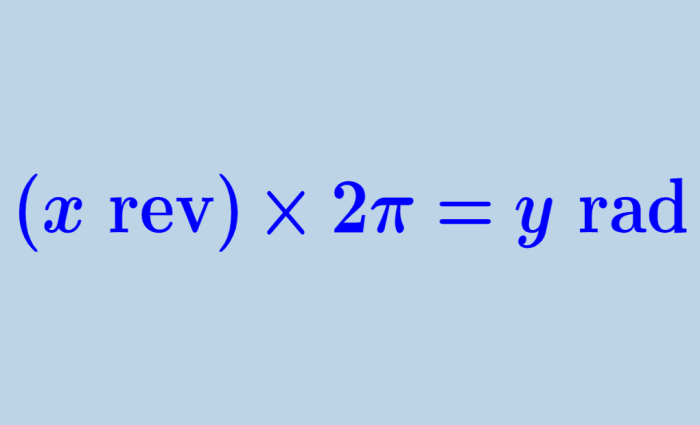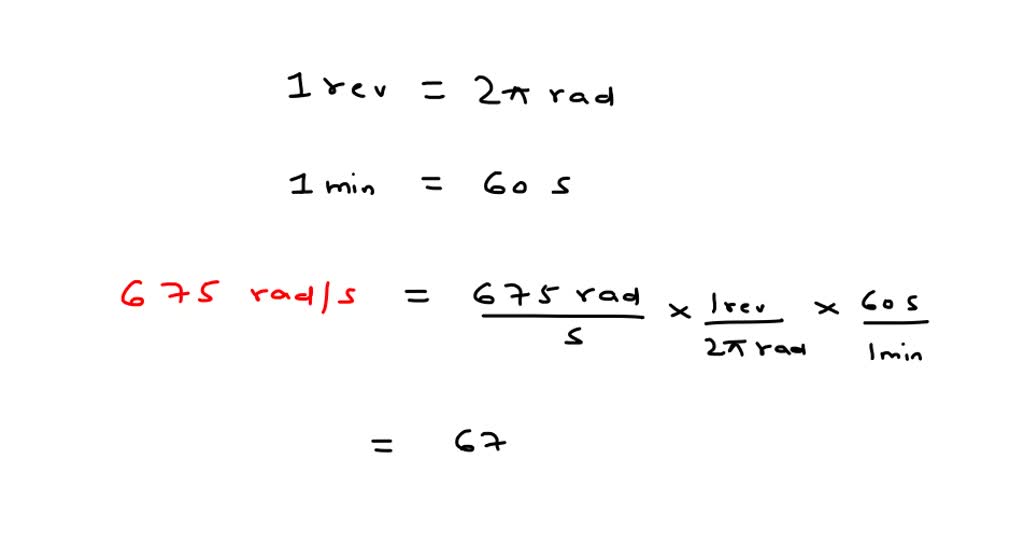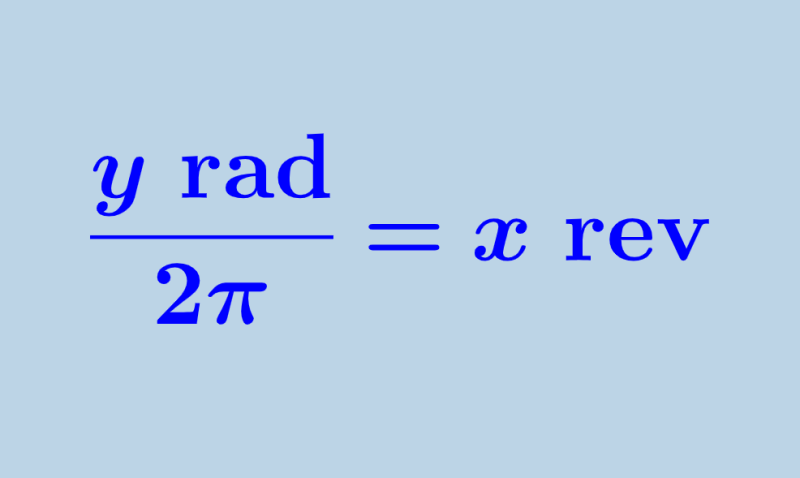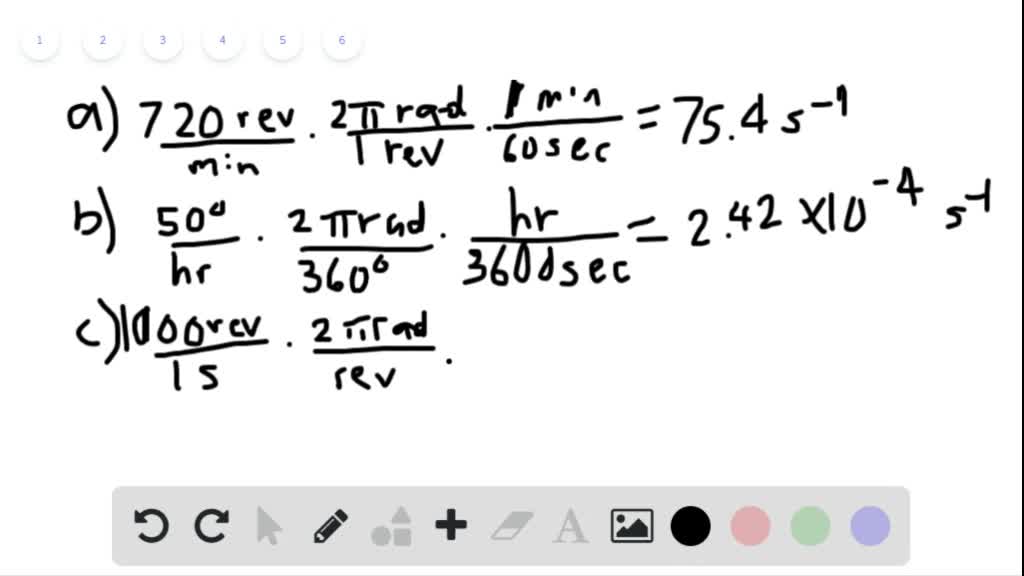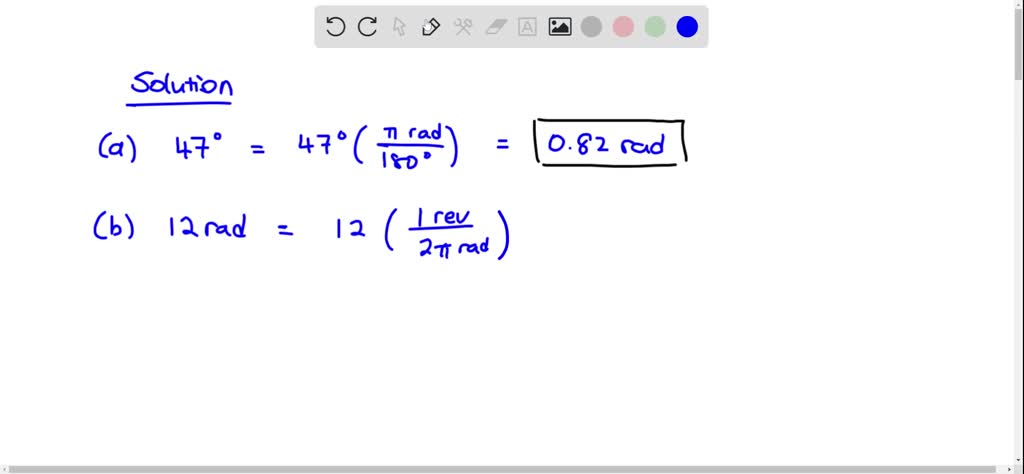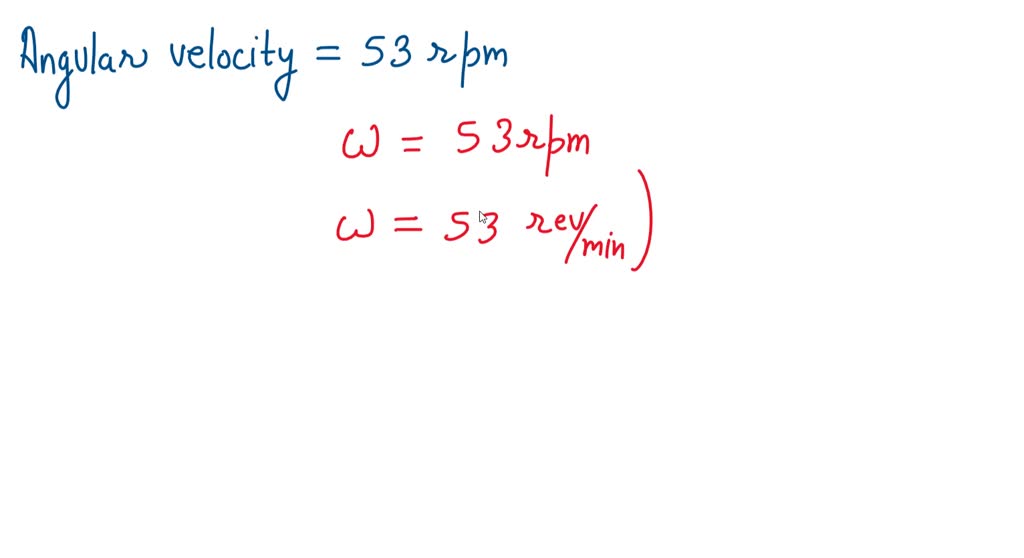Revs Per Min To Rads Per Second

Alright, buckle up buttercups! Let's dive headfirst into the whirlwind world of rotational speed. We're talking RPM – you know, Revs Per Minute – and its cooler, more mathematically inclined cousin, Rads Per Second. Forget feeling intimidated; we're making this a party!
What's the Deal with RPM?
RPM, or Revolutions Per Minute, is pretty straightforward. Imagine a record player, spinning your favorite tunes. The RPM tells you how many times that record completes a full circle in one minute. Easy peasy!
Think of a car engine roaring to life. That little needle on your dashboard is tracking the engine's RPM. The higher the RPM, the faster the engine's crankshaft is spinning, and the more power it's (hopefully) generating. Zoom!
Enter Rads Per Second: The Mathlete of Rotational Speed
Now, Rads Per Second (or radians per second) sounds a bit more intimidating, doesn't it? Don't let it scare you! Radians are just another way to measure angles, like degrees, but way more useful for engineers and physicists.
Instead of counting full revolutions, radians measure the angle covered as something spins. One full revolution equals about 6.28 radians (that's 2 times Pi, for those keeping score at home!). Basically, it is like measuring distance by centimeters instead of inches. Both measure distance, just using different units.
Why Rads Per Second? Why Bother?
Because sometimes RPM just isn't precise enough for serious calculations. Imagine you're designing a super-fast, gravity-defying hamster wheel. You need precise measurements. You need Rads Per Second! This will give the most accurate results for further computation.
Rads per second simplifies things in advanced physics and engineering. If you're calculating the angular momentum of a spinning satellite or figuring out the torque needed to turn a giant turbine, radians make the math much smoother.
The Big Reveal: Converting Like a Pro
Okay, here's the magic formula to change from RPM to Rads Per Second, you’ll love this. Drumroll, please!
Rads Per Second = (RPM * 2 * Pi) / 60
Let’s break it down. Multiply the RPM by 2 times Pi (approximately 6.28). Then, divide the whole shebang by 60 (because there are 60 seconds in a minute). BOOM! You've got Rads Per Second!
Let’s Get Real (With an Example)
Suppose you have a ceiling fan spinning at 120 RPM. Let's transform that into Rads Per Second.
So, (120 * 2 * 3.14159) / 60 = approximately 12.57 Rads Per Second. Whoa! Our fan is spinning furiously!
So, What Have We Learned?
We’ve cracked the code on RPM and Rads Per Second. RPM is your everyday measure of rotational speed, great for casual observations. Rads Per Second is the mathematical powerhouse, perfect for hardcore engineering calculations. It's about using the right tool for the job!
Don't be intimidated by the science-y stuff! Embrace your inner mathlete and go forth, conquering the world of rotational speed, one radian at a time!
Go forth and spin, knowledge seeker! Go forth and spin!
+revs+per+minute+x+2𝜋+60+%3D+radians+per+second.jpg)



